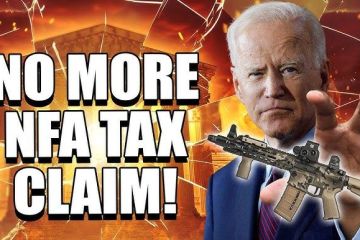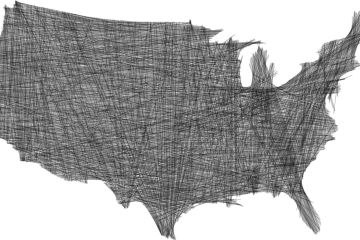Canada’s Gun Grab – Running Out of Road
The wheels are coming off of Canadian Prime Minister Justin Trudeau’s gun confiscation program (“buyback”).
As proposed, the confiscation of firearms and devices that were banned as “prohibited” by Trudeau’s Liberal government over four years ago was to have been underway by now. Public Safety Canada’s website on the program titled the “Firearms Buyback Program Overview” (last updated 2023-07-26), continues to state that a “staged implementation is planned, with the collection of business stock beginning before the end of the year, and to get started with individual collection in the second half of 2023.”
Several provinces have already ruled out entirely (here and here, for instance) any possibility that their law enforcement resources could be used to implement the confiscation of the banned firearms and devices. One provincial official’s position was characteristic of the spirit of this opposition, stating, “[w]e do not and will not support initiatives that only impact the law abiding, RCMP vetted, hunters, sport shooters, ranchers, farmers and others who use firearms for lawful and good reasons… we will not authorize the use of provincially funded resources of any type for the federal government’s ‘buy back’ program.”
- Buy All-American!
- Bring health and vitality back to your body with these non-transdermal patches
- Get your Vitamin B17 & Get 10% Off With Promo Code TIM
- How To Protect Yourself From 5G, EMF & RF Radiation - Use promo code TIM to save $$$
- The Very Best All-American Made Supplements On The Maret
- Grab This Bucket Of Heirloom Seeds & Save with Promo Code TIM
- Here’s A Way You Can Stockpile Food For The Future
- Stockpile Your Ammo & Save $15 On Your First Order
- Preparing Also Means Detoxifying – Here’s One Simple Way To Detoxify
- The Very Best Chlorine Dioxide
- All-American, US Prime, High Choice Grass-Fed Beef with NO mRNA, hormones or antibiotics... ever!
At the start of this year, there were indications that the federal government was considering hiring private entities, rather than law enforcement or similar government agents, to enforce the ban and confiscation. Government procurement/ solicitation documents envisioned a scheme in which the private contractors would take custody of the banned firearms at designated collection points across Canada, provide secure storage facilities, and transport and destroy the guns according to government specifications. The contractors, as private entities with no police powers, would necessarily rely on voluntary compliance. Another potential complication was the fact that these contractors would not be responsible for administering the compensation payments, meaning that any gun owners who did choose to surrender their property would be relying on a separate bureaucracy for their checks. The government advised, at the time, that “Canada will be applying measures surrounding the protection” of the vendors’ identity “in order to ensure vendors do not face reprisals or retaliation,” so further disclosures on the progress of the private sector option are unlikely. Subsequent developments, though, tend to suggest that this opportunity failed to excite sufficient interest.
Canada Post, a Crown corporation, reportedly declined to participate in a mail-in collection of the prohibited firearms and devices, citing safety and security concerns. The plan was “to have owners of banned guns place the unloaded and secured weapons in government-issued boxes and then send them back to the government to be destroyed.” One Canada Post employee described the security at his small municipal post office as “zero,” adding “[t]he government is crazy if it thinks we can do this safely.” Canada Post CEO Doug Ettinger framed the matter more diplomatically on May 29, telling the House of Commons Standing Committee on Government Operations and Estimates that, due to an “internal safety assessment, … we are not comfortable with the process that was being proposed,” and that this “should be best left to those that know how to handle guns, know how to dismantle them, know how to manage them so no one gets hurt.”
A bigger issue, flagged by TheGunBlog.ca, a Canadian gun rights website, is that a 1998 regulation makes it a crime for individuals to ship “prohibited” rifles and shotguns using Canada Post. The regulation, SOR/98-209, was imposed by the Liberals “in 1998 to expand the Firearms Act, their sweeping anti-gun law of 1995.” News reports state that Dominic LeBlanc, Canada’s Public Safety Minister (the government official responsible for the implementation of the confiscation), has now introduced amended regulations. “These proposed regulations will make the affected firearms and devices mailable matter and will temporarily permit businesses taking part in the program to ship firearms or devices via post,” said Mr. Leblanc. However, his official statement at the end of May refers only to “the business phase,” not individual collection, whereby the new regulations “will provide businesses with additional options to participate in the program and dispose of the affected assault-style firearms and devices they hold in their inventory.”
Other options that the federal government may be exploring is creating “drop-off points” where owners would surrender their weapons, or using retired Royal Canadian Mounted Police (RCMP) and other former law enforcement officers as collection agents. TheGunBlog.ca writes that the RCMP Reserve Program in the province of New Brunswick has emailed reservists to solicit their interest regarding participating in the gun confiscations, stating that “J Division Reservists are crucial to the success of this program.”
TheGunBlog.ca notes that this raises a number of troubling concerns. “Why is the RCMP working on a compensation program that doesn’t exist?” More importantly, is the RCMP “calling on reservists to help on the ground with door-to-door confiscation raids targeting” government-licensed firearm owners and businesses, and if so, why is the RCMP partnering in “the authoritarian crackdown targeting honest citizens, instead of protecting honest citizens from it?” TheGunBlog.ca contacted both the RCMP and the Liberal government multiple times for additional information on this “RCMP public safety priority,” without success.
What could possibly be next?
Millions of taxpayer dollars have already been spent on a program that is stuck at the starting line. The Liberal government has had to twice extend the “amnesty period” that allows affected gun owners to continue to possess (but not use or sell) their banned guns without incurring criminal liability. The latest amnesty period is due to expire on October 30, 2025.
An anonymous government source told reporters that “[n]o one is rushing to participate in the program.” Teri Bryant, the chief firearms officer for the province of Alberta, says much the same and pinpoints the reason. “No one wants to be involved in this program because it is so unpopular…I don’t see any way it can be done.”
Article posted with permission from NRA-ILA
Don't forget to like us on Facebook and follow us on Twitter.














